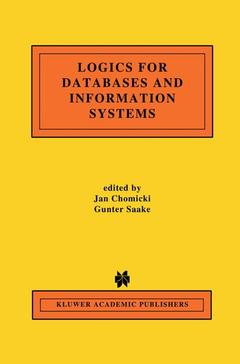Time is ubiquitous in information systems. Almost every enterprise faces the problem of its data becoming out of date. However, such data is often valu able, so it should be archived and some means to access it should be provided. Also, some data may be inherently historical, e.g., medical, cadastral, or ju dicial records. Temporal databases provide a uniform and systematic way of dealing with historical data. Many languages have been proposed for tem poral databases, among others temporal logic. Temporal logic combines ab stract, formal semantics with the amenability to efficient implementation. This chapter shows how temporal logic can be used in temporal database applica tions. Rather than presenting new results, we report on recent developments and survey the field in a systematic way using a unified formal framework [GHR94; Ch094]. The handbook [GHR94] is a comprehensive reference on mathematical foundations of temporal logic. In this chapter we study how temporal logic is used as a query and integrity constraint language. Consequently, model-theoretic notions, particularly for mula satisfaction, are of primary interest. Axiomatic systems and proof meth ods for temporal logic [GHR94] have found so far relatively few applications in the context of information systems. Moreover, one needs to bear in mind that for the standard linearly-ordered time domains temporal logic is not re cursively axiomatizable [GHR94]' so recursive axiomatizations are by necessity incomplete.




